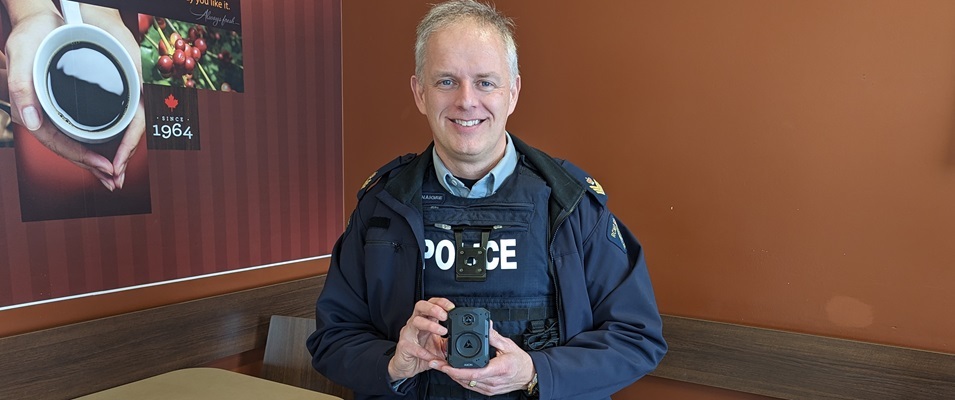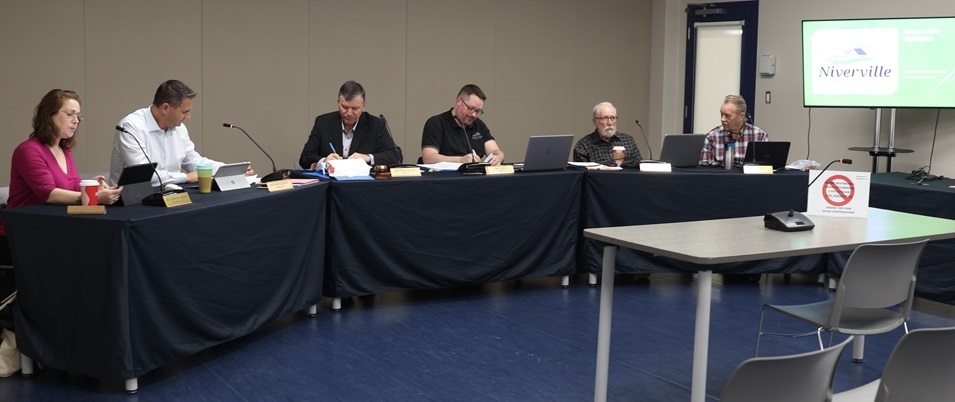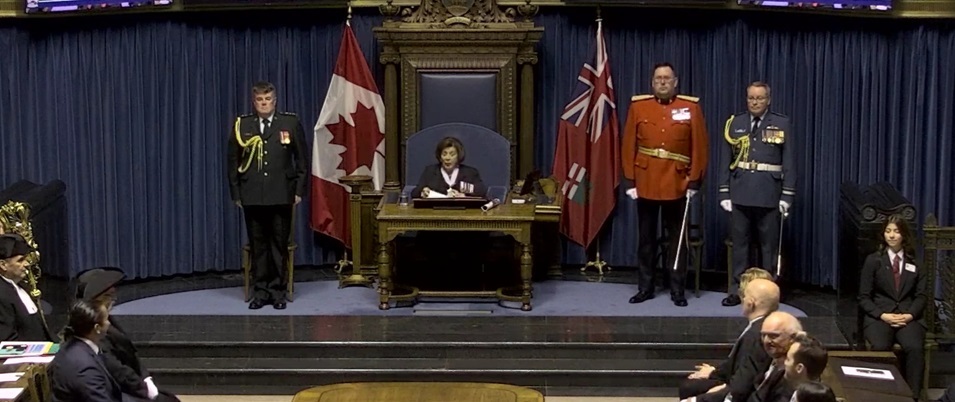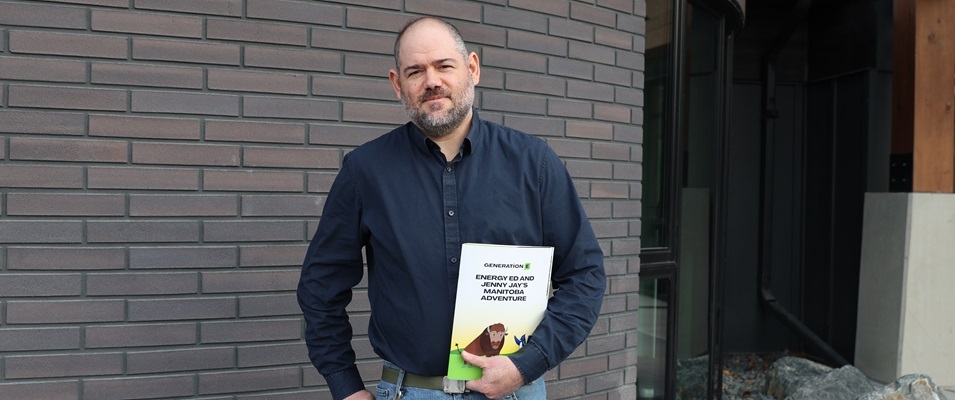
One month after the sudden resignations of three members of the RM of Ritchot’s council, including its mayor, broad disagreement remains as to how and why it happened. One way or another, however, Ritchot will soon have a new council in place, with a by-election scheduled to occur on July 19.
With only two councillors remaining, they were unable to form a quorum. Therefore, on May 10, the province appointed an administrator to take care of the municipality’s day-to-day operations until a new council could be elected. The province has tapped Roger Bouvier, the former chief administrative office of La Broquerie and a retired municipal services officer with decades of experience, to oversee this contentious period.
In addition to handling day-to-day operations and any emergencies which may arise, Bouvier has said his primary responsibility is to ensure that a by-election is carried out in a timely manner.
Although two councillors remained after the resignations, they will not retain their seats. All five seats—four ward councillors and one mayor—will be up for election on July 19. The former council members are allowed to run again.
Indeed, Jackie Hunt has recently announced her intention to seek the mayor’s office again. It’s unknown whether other former council members will join her.
The nomination period is currently underway. Candidates who intend to run will have the opportunity to file their nomination papers at the municipal office from June 7–9, and then again from June 12–13. The papers can be filed between 9:00 a.m. and 4:00 p.m. on those days.
Why Did This Happen?
Mayor Jackie Hunt stepped down on Friday, April 28, leading to the further resignations of Councillor Jeannot Robert (who also served as deputy mayor) and Councillor Ron Mamchuk the following Monday. In the aftermath, the public was given little indication of their rationale. On Tuesday, May 2, Hunt released a public statement indicating that bullying played a major role in her decision.
“When a Council cannot function as a group, and when mediation does not work, and when name calling and belligerent behaviour become the norm, it is time to re-evaluate your spot at the table,” wrote Hunt, who had been in the midst of her first mayoral term. “If I stayed and did nothing, then I became complicit and accepting of the behaviour. We are trying to encourage people to run for public office, and we need to ensure they are protected from bullying and inappropriate behaviour while serving their communities.”
It has since been publicized that these remarks were, to a large degree, aimed at Councillors Ernie Dumaine and Corinne Webb. Dumaine in particular has been accused of bad behaviour, including derogatory remarks and gestures he was observed to have made during a council meeting on April 19.
Aside from Hunt’s May 2 statement, neither she nor Robert or Mamchuk have granted media interviews since stepping down. Dumaine and Webb, however, have presented their side of the story through mailouts to residents throughout the municipality.
“Recently, Jackie Hunt, former Mayor of Ritchot, released a press statement alleging bullying, name calling and belligerent behaviour on Council as reasons for her resigning,” a May 11 communication reads. “Nothing could be further from the truth.”
In addition to disputing the bullying charge, the mailout goes on to assert that members of council acted improperly regarding a recent park that was built in a new development in St. Adolphe. Their contention is that Garden Ridge Park contains a hockey rink “that was put up illegally next to a house” and that the rink “had no permit and did not meet our Zoning By-Law.”
They further claim that some grants and funding received by the park were obtained improperly and that only Hunt and Mamchuk knew about the hockey rink’s development. Indeed, they claim to have only heard about the rink through hearsay in the municipal office.
Regardless of the veracity of these claims, it’s indisputable that the clash over Garden Ridge Park led to a major public argument at the April 19 council meeting, during which a conditional use application was sought for the rink. The conditional use application passed by a vote of 3–2. It should be noted that the rink, along with the rest of the park, had already been fully constructed at the time of the meeting.
A homeowner whose property line lies just meters from the hockey rink made numerous complaints about the noise. He, too, alleges that the rink is illegal, that no permit was applied for, and that it was built in contravention of bylaws. He is reportedly in the process of filing a lawsuit against the municipality to protect his home investment, adding that he and his family have been made out to be the bad guys by members of the community who favour the park.
Webb and Dumaine followed up their first mailout with a second, delivered on May 18, encouraging other residents to press the Minister of Indigenous and Municipal Relations, Eileen Clarke, to launch an investigation into the park. This second letter purported further improprieties, including that this is not the first time municipal employees have spent money on projects which were not properly approved.
“We need to hold employees as well as Council accountable for their actions,” Webb and Dumaine wrote. “If a legal matter results from such violations the individuals should be liable for their wrongdoings or mistakes.”
As of press time, Hunt, Robert, and Mamchuk have not yet answered these claims. Although the claims are serious, none of them have been proven.
Hunt Runs for Re-Election
It was reported on May 30 that Jackie Hunt will run for re-election as Ritchot’s mayor.
“I would be privileged to resume this important work on behalf of the citizens of Ritchot,” reads a statement from Hunt. “While I regret the disruption that this has caused, I am greatly encouraged by the conversations that this has started. I have also been overwhelmed with the support and encouragement I have received from across the municipality… I would like the opportunity to finish what I started and to continue to serve the public good in the role of mayor. Having other community-minded people around the table is important to me, and now we have an opportunity to make that happen.”
Notably, her statement does not address the allegations made by Webb and Dumaine. It is also not yet known whether she will face any other challengers.
Former Councillor Speaks Out About Controversy
Elmer Hywarren, who served as a Ritchot councillor from 2010 to 2014, has been watching these proceedings with great interest. He remembers attending the April 19 council meeting, the last time this group of councillors and mayor met in public.
“I went there and reminded council about the zoning by-law and a bit of the history of the community,” says Hywarren. “They were applying for a conditional use [permit] after the fact. This is where the problem was.”
He recalls when Mayor Hunt made a request of the two developers of the adjoining developments to merge their dedicated greenspace into one area. According to the Planning Act, developers must dedicate up to ten percent of their holdings to the municipality for greenspace. The merging of these spaces doubled the park’s size. Hywarren agrees that the mayor made a reasonable request which was beneficial to the residents of both developments and did not require council’s vote on the matter.
The issue, Hywarren believes, boils down to internal accusations of improper protocols regarding a structure—specifically, the hockey rink and its concrete pad—on that greenspace.
“The zoning by-law states that, in order to have a structure, you have to have a building permit,” says Hywarren. “You also have to have sufficient clearances with adjoining properties and the street.” The concrete pad, he says, would have fallen under the same restrictions as a structure.
Another concern appeared to be the questionable allocation of Manitoba Hydro’s Community Development Initiative (CDI) funds designated for the greenspace. In addition, the park recently received $20,000 from Manitoba Liquor and Lotteries.
“If some of the funding came from CDI and it was [to be] designated for that community greenspace, then it would have to be approved by council with a majority vote,” Hywarren says, although he acknowledges that council members need not be specific about the use of the funds within the park.
As for following legal protocols, Hywarren says that every councillor should take responsibility to know and understand legislation before making important decisions.
“To be a councillor you only have to worry about the Municipal Act, the Planning Act, the development plan, and your zoning by-law,” Hywarren says. “Those are the things you should at least have some knowledge of. Most don’t, and they rely on the Chief Administrative Officer (CAO) and his staff. [These staff members] have to know the detail. But, as a councillor, you should be aware of detail. Don’t go in and say, ‘I’m not a detail person.’ It is not up to the CAO to tell you that you’re in a conflict of interest. You’re the one that has to make that decision as a councillor. It’s not the responsibility of the administrator. The act doesn’t say that the CAO is supposed to be the keeper of councillors and as a councillor you should not move forward if you don’t understand [the rules].”
Hywarren says that typical punitive measures from the Municipal Board would require a mayor or councillor to be removed from their seat, which has happened before in Ritchot’s history. Since resignations have already occurred, little can be done should the mayor or councillors be found culpable of any charges. Although if any of those council members were to retain their positions, as Hunt seeks to do, removals could be an option.
Legal fees may also become a concern. According to Hywarren, at least one councillor in times past had their legal fees paid for by the municipality when faced with a lawsuit. After a resignation occurs, Hywarren believes that the party to which the lawsuit is directed may likely be responsible for their own as well as the complainant’s legal fees.
Hywarren says that this council wasn’t always so acrimonious. Prior to the 2014 election, he recalls that every council member was in favour of Hunt’s run for mayor, including Dumaine. It isn’t unusual, though, for emotions to run high when one community (or ward) appears to get priority over the others.
“Forget about whether the rink is there or not,” says Hywarren. “Councillors are required to look after the business of community. And it isn’t Grande Pointe and it isn’t Île-des-Chênes. It is the municipality of Ritchot. And that is really where a councillor’s responsibilities [lie]. You are in a ward for electoral purposes only, so the moment that you’re elected, the wards should disappear. But unfortunately, they don’t.”
Consequences of Resignations
Though Hywarren is disappointed with the outcome of the park and the distress it’s caused St. Adolphe residents, he is more put out by the mayor’s and councillors’ untimely resignations and what that means for Ritchot as a whole.
Until the July 19 by-election is held, Bouvier has said that some municipal business is necessarily on hold.
The biggest consequence to residents is that all public hearings have to be postponed, including a hearing to review the municipality’s financial plan, which had been in the works prior to the resignations. At the financial plan hearing, council is required to provide public knowledge of the annual financial plan and hear out resident concerns about the plan. Without this hearing, the budget cannot be implemented. Without implementation, property tax mill rates cannot be established and school and property taxes cannot be collected. No school tax collection means no income for the schools within the municipality until a new council is established.
The municipality has hit pause on other projects, too, such as road gravelling and drainage construction, which require council’s approval. Decisions on zoning variances and conditional use permits are also stalled.
Even after the by-election, Bouvier has cautioned that little can be done to prevent this situation from happening again if council continues to have trouble working together. This could be of particular concern if the makeup of council doesn’t significantly change after the election.
“There’s nothing that I can do,” Bouvier told the CBC in an interview last month. “We’re going to do everything we can to make sure that everyone is aware of it, and we just run the process. It’s up to the local electors to make sure that they elect a group that’s prepared to work together… Once they get in the same room, there’s difficult decisions to be made and sometimes it works, sometimes it doesn’t.”



















